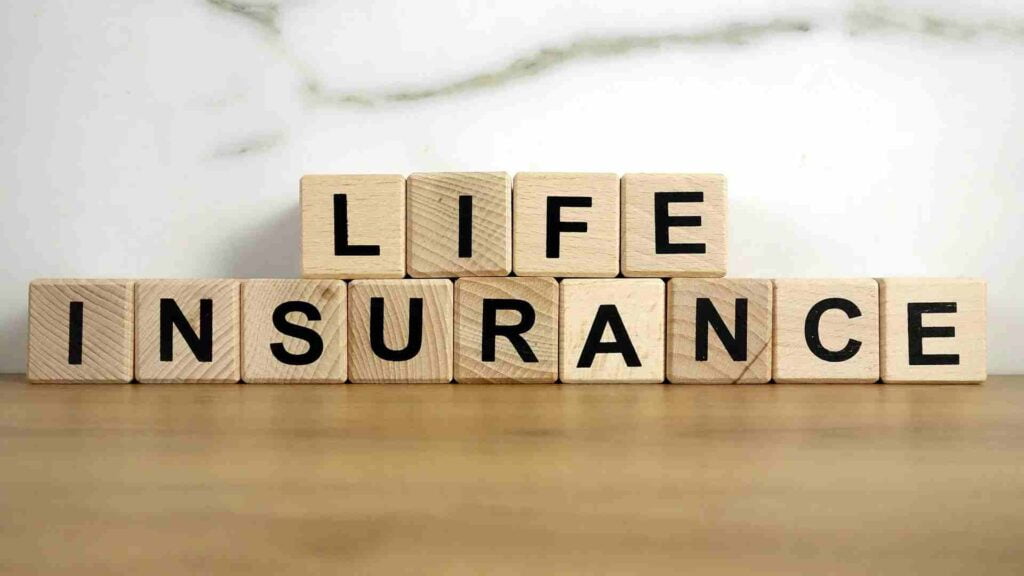Life insurance is a crucial financial safety net that provides peace of mind for countless individuals and families. However, the cost of life insurance is not the same for everyone. It is influenced by a variety of factors, including age, health, lifestyle choices, and yes, whether you smoke or not.
When it comes to lifestyle choices, smoking is a big deal for insurance companies. Most of us think of cigarettes first, but what about cigars? Do insurers view them the same way?
In this article, we’ll dive into the often tricky relationship between cigar smoking and life insurance. We’ll look at how insurance companies view cigar smoking, how it affects your premiums, and what it means for you if you enjoy the occasional cigar. So, whether you’re a cigar enthusiast, shopping for insurance, or just curious, keep reading as we clear the air about cigars and life insurance.
Risk Classifications
Life insurance companies categorize applicants into risk classes to determine the premium rates based on the level of risk they represent. Here’s how the process works:
- Preferred Plus: This is the best classification with the lowest premiums. Applicants must be in excellent health with no medical issues and lead a very healthy lifestyle.
- Preferred: Applicants in this class are in good health generally but may not meet all the criteria for the Preferred Plus class.
- Standard Plus: Individuals in this class are in average health and may have minor health issues.
- Standard: This is the baseline for average health without significant health issues but not qualifying for better rates.
- Substandard: Applicants with major health issues or high-risk lifestyles that increase their risk of early death fall into this category, leading to higher premiums.
Tobacco Use Impact: Being classified as a tobacco user significantly affects life insurance premiums because tobacco users are considered at higher risk due to the associated health problems. Here’s how tobacco use impacts risk classification and premiums:
- Tobacco User Classes: Insurers often have separate standard and preferred classes for tobacco users, reflecting the increased risk and higher premiums they will pay.
- Higher Mortality Rate: Tobacco users, including cigar smokers, have a higher mortality rate, which translates to higher premiums. Smokers may pay two to three times more than non-smokers for life insurance policies.
- Occasional vs. Regular Use: Some insurers may differentiate between occasional and regular tobacco use. Occasional cigar smokers may get a break, but this varies by insurer.
- Testing for Nicotine: Life insurance applications typically require a medical exam, which includes testing for nicotine or cotinine, a metabolite of nicotine. This helps insurers determine if you’re a tobacco user.
In summary, life insurance companies use risk classifications to set premiums, and being a tobacco user places you in a higher risk category, leading to increased premium costs. Applicants need to be honest about their tobacco use to ensure accurate classification and avoid complications with policy claims.
Cigar Smoking vs Cigarette Smoking

Cigar smoking and cigarette smoking differ in several key aspects, and these differences can impact how insurance companies view them and assess associated risks. Here’s a breakdown of the distinctions:
Frequency and Quantity of Use:
- Cigarette Smoking: Cigarette smoking often involves frequent and regular use, with many smokers consuming multiple cigarettes per day.
- Cigar Smoking: Cigar smoking tends to be less frequent and more occasional in nature. Many cigar smokers may only indulge on special occasions or social gatherings, and they typically smoke fewer cigars compared to cigarettes.
Inhalation Factor:
- Cigarette Smoking: Cigarette smokers typically inhale the smoke directly into their lungs, resulting in the absorption of nicotine and other harmful substances into the bloodstream.
- Cigar Smoking: Cigar smokers generally do not inhale the smoke into their lungs. Instead, they draw the smoke into their mouths and savor the flavors before exhaling. As a result, the absorption of nicotine and other toxins is usually lower compared to cigarette smoking.
Health Risks:
- Cigarette Smoking: Cigarette smoking is associated with a wide range of serious health risks, including lung cancer, heart disease, respiratory problems, and a myriad of other illnesses. The inhalation of cigarette smoke directly into the lungs exposes smokers to high levels of toxins and carcinogens.
- Cigar Smoking: While cigar smoking is not without health risks, it is often perceived as less harmful than cigarette smoking, especially when done infrequently and without inhaling. However, cigar smoking still poses risks of oral, throat, and esophageal cancers, as well as cardiovascular diseases.
Tar and Nicotine Content:
- Cigarette Smoking: Cigarettes typically contain higher levels of tar and nicotine compared to cigars. The design of cigarettes, including the use of filters, enhances the delivery of these substances into the smoker’s system.
- Cigar Smoking: Cigars generally contain less tar and nicotine than cigarettes, but this can vary depending on factors such as the size and type of cigar. However, even though cigar smokers may absorb less nicotine per cigar, the cumulative effects of regular cigar smoking can still contribute to health risks.
Insurance Considerations:
Risk Assessment: Insurance companies assess the risk of insuring individuals based on various factors, including their smoking habits. While both cigar and cigarette smoking are considered tobacco use, insurers may differentiate between occasional cigar smokers and regular cigarette smokers in their underwriting process.
Premium Rates: Insurance premiums for smokers are typically higher than those for non-smokers due to the increased health risks associated with tobacco use. However, occasional cigar smokers may be categorized differently or may qualify for lower rates compared to regular cigarette smokers, depending on the insurer’s policies and underwriting criteria.
In summary, while both cigar and cigarette smoking pose health risks and are generally viewed similarly by insurance companies in terms of tobacco use, there are notable differences in frequency of use, inhalation practices, health implications, and how insurers may assess and categorize smokers, which can impact insurance premiums and coverage options.
Underwriting Guidelines
Life insurance companies have distinct underwriting guidelines that affect how they view cigar smoking. These guidelines are crucial because they determine whether an individual will be classified as a smoker or non-smoker, which significantly impacts premium rates. Here’s an insight into the underwriting guidelines of different companies:
- AIG/Corebridge: They may classify an occasional cigar smoker as a non-tobacco user if the individual smokes no more than one cigar per week and has no nicotine metabolites present in the urinalysis for the past 12 months. Additionally, there should be no use of other tobacco products for at least five years.
- Allianz Life Insurance Company of North America: They offer non-tobacco rates with occasional cigar use only, provided there is a negative urine cotinine specimen. The permitted number of cigars per month is not published, but generally, up to four per month might be acceptable.
- American National: An occasional cigar smoker may qualify for non-tobacco rates if they smoke no more than twice per month and have a negative health statement (HOS). E-cigarettes and vaping are treated as smoker regardless of nicotine content.
- Ameritas: They allow up to two cigars per month for individuals to qualify for non-tobacco rates, with the requirement that the urinalysis must be negative for nicotine.
- Lincoln Financial Group: They consider up to 12 cigars a year as occasional use, with a urine specimen negative for nicotine, to qualify for non-tobacco rates.
- Other Considerations: Some companies may not differentiate between occasional and regular cigar use, treating all tobacco use the same. It’s also important to note that medical records and lab results should be consistent with the smoking status indicated on the application.
These guidelines show that while some insurers are more lenient with occasional cigar smokers, offering them non-tobacco rates, others may not make such distinctions.
Honesty in Applications
Honesty in life insurance applications is not just a moral obligation but a legal one as well. When applying for life insurance, it’s crucial to be completely truthful and accurate in providing information to the insurerTruthfulness serves as the foundation for an effective and sustainable insurance policy. It allows insurers to accurately assess risks, calculate premiums, and provide appropriate coverage to policyholders.
Here are some consequences of non-disclosure of smoking habits;
- Policy Voidance: If an insurer discovers that an applicant has lied about smoking, they may void the policy, leaving the insured without coverage.
- Claim Denial: In the event of the insured’s death, if it’s found that they did not disclose their tobacco use, the insurer may deny the claim, leaving beneficiaries without financial support.
- Premium Adjustments: Misrepresenting health conditions can lead to incorrect premium calculations. If discovered, insurers may adjust premiums retroactively or cancel the policy.
- Legal Repercussions: Intentional misrepresentation or fraud can lead to legal action against the applicant.
It’s crucial to know that insurance companies have ways to check the information you give them. Whether through medical exams or other investigative methods, if they discover that you’ve lied about your smoking habits, the consequences can be serious and long-lasting.
So, it’s really important for applicants to be open about their health and lifestyle choices, like smoking cigars. Being honest not only builds trust with the insurance company but also makes sure the policy works as it’s supposed to when a claim is made. By being upfront, you can avoid a lot of headaches later on and ensure that life insurance truly protects your financial future.
Premium Costs
On average, cigar smokers can expect to pay significantly higher premiums for life insurance compared to non-smokers. The cost difference can be quite substantial:
- Policygenius data indicates that smokers pay an average of 286% more than non-smokers for the same policy. For instance, a 30-year-old female purchasing a $500,000, 20-year term life insurance policy could end up paying an additional $10,200 over the life of the policy compared to a non-smoker.
- According to ValuePenguin, the premiums for term life insurance could be between 164% and 343% more expensive for smokers versus non-smokers.
- A NerdWallet analysis found that a 40-year-old male smoker could pay 500% more than a non-smoker for a $500,000 20-year term life insurance policy.
- Forbes Advisor also notes that a smoker can pay about four times as much for life insurance as a non-smoker.
These figures highlight the financial impact of smoking on life insurance costs and underscore the importance for cigar smokers to shop around for the best rates and consider quitting to reduce their premiums. Remember, these are average figures and the exact cost can vary based on individual circumstances and the insurance provider’s policies.
Insurance Tests for Nicotine
The process of testing for nicotine in life insurance applications typically involves several steps. Here’s what you can expect during the nicotine testing process:
- Initial Application: During the application, you’ll be asked about your tobacco use, including whether you smoke cigars, cigarettes, use chewing tobacco, or any nicotine replacement products like patches or gum.
- Medical Exam: If your policy requires a medical exam, a health professional will conduct the exam and ask detailed questions about your health and tobacco use.
- Sample Collection: During the medical exam, you’ll provide samples for testing. This usually includes urine and blood tests, which are used to detect the presence of nicotine or its byproduct, cotinine.
- Detection Period: Nicotine and cotinine can remain in your system for up to a month. The tests are sensitive enough to pick up nicotine from various sources, including cigarettes, cigars, vaping, and smokeless tobacco products.
- Results and Classification: The results of the nicotine test will determine how the insurance company classifies you. If nicotine is detected, you’ll likely be classified as a smoker, which can lead to higher premium rates.
- Honesty Policy: It’s crucial to be honest about your smoking habits. If you lie on your application and the insurer discovers this later, they may deny you coverage or cancel your policy.
Remember, the exact process can vary slightly between insurance companies, but the general steps are similar.
Policy Options for Smokers

Smokers have access to the same types of life insurance policies as non-smokers, but with different underwriting criteria and premium rates. Here are the primary types of life insurance policies available to smokers:
- Term Life Insurance: This is the most straightforward type of life insurance, providing coverage for a specific period, such as 10, 20, or 30 years. If the insured passes away during the term, the policy pays out the death benefit to the beneficiaries.
- Whole Life Insurance: This is a type of permanent life insurance that provides coverage for the insured’s entire lifetime. It also includes a savings component, known as cash value, which grows over time.
- Universal Life Insurance: Similar to whole life, universal life insurance offers a death benefit and a cash value component. However, it provides more flexibility in terms of premium payments and death benefits.
- Guaranteed Issue Life Insurance: This policy is designed for individuals who may not qualify for other types of life insurance due to health issues. It requires no medical exam, but typically has higher premiums and lower coverage amounts.
While smokers generally pay higher premiums for life insurance, some companies offer more competitive rates for smokers. Here are a few companies that are known to be smoker-friendly:
- Legal & General America: Known for offering some of the best rates for smokers.
- Corebridge Financial: They offer competitive life insurance rates for smokers.
- Transamerica: Offers well-priced term life insurance to smokers and no-medical-exam policies to eligible healthy applicants.
- John Hancock: They have a program called Vitality which benefits “healthy smokers” — those who use tobacco but are otherwise in good health.
- Mutual of Omaha: All three major types of life insurance policies are available through Mutual of Omaha — term, whole, and universal.
Can Extreme Athletes Get Life Insurance?
Remember, it’s always a good idea to shop around and compare quotes from different insurance companies to find the best rates. An independent insurance agent can help you shop the market and get quotes from insurers that tend to be nicotine-friendly.
Long-Term Financial Impact
The long-term financial impact of higher premiums on cigar smokers and their families can be quite significant. Here’s an analysis of the potential effects:
- Increased Premium Costs: As mentioned earlier, smokers can pay up to 500% more for life insurance than non-smokers. Over the duration of a policy, this can amount to tens of thousands of dollars in additional costs.
- Healthcare Expenses: Smokers may face higher healthcare costs due to smoking-related illnesses. These costs can add up over time, especially if chronic conditions develop.
- Reduced Disposable Income: The extra money spent on higher premiums and healthcare expenses reduces the disposable income available for other family needs, savings, or investments.
- Impact on Retirement Savings: Higher insurance premiums can also affect long-term savings, potentially reducing the amount of money available for retirement.
- Estate Planning: The increased cost of insurance premiums can affect estate planning, as it may reduce the amount of wealth that can be passed on to heirs.
- Quality of Life: The financial strain of higher premiums can impact the overall quality of life for smokers and their families, limiting their ability to afford other life-enhancing opportunities.
- Insurance Coverage Adequacy: Due to higher premiums, smokers may opt for lower coverage amounts, which can leave their families less protected financially in the event of the smoker’s untimely death.
- Tax Implications: In some cases, higher premiums can lead to tax deductions for medical expenses, but this is generally only beneficial if total medical expenses exceed a certain percentage of income.
In conclusion, the long-term financial impact of higher premiums on cigar smokers and their families is multifaceted, affecting not just immediate cash flow but also long-term financial planning and quality of life. It’s important for cigar smokers to consider these factors when evaluating life insurance options and to explore ways to mitigate these costs, such as quitting smoking or finding smoker-friendly insurance policies.
FAQs
Q 1. What is the contestability period, and how does it affect smokers?
Ans. The contestability period is typically the first two years of a life insurance policy during which the insurer can contest a claim. If you start smoking after purchasing a policy, it’s possible the insurer may not find out unless a claim is made during this period.
Q 2. How does smoking cessation affect life insurance premiums?
Ans. If you quit smoking, you may be eligible for lower premiums. Insurers typically require you to be smoke-free for at least 12 months to qualify for non-smoker rates.
Q 3. Does using nicotine replacement therapy affect life insurance rates?
Ans. Using nicotine replacement therapy can affect life insurance rates as it usually results in a positive test for nicotine or cotinine. Insurers may still classify you as a smoker.
Q 4. What happens if I start smoking after getting a life insurance policy?
Ans. If you start smoking after your policy is in effect, it’s best to inform your insurer. Depending on the company’s policies, your premiums may or may not change.
Q 5. Can I get life insurance if I occasionally use e-cigarettes or vape?
Ans. Yes, you can get life insurance if you use e-cigarettes or vape, but you may be classified as a smoker, which can affect your premiums.
Conclusion
In conclusion, while enjoying a cigar may seem like a harmless indulgence, it’s important to understand the potential impact on your life insurance premiums. Cigar smoking, like any form of tobacco use, is viewed as a risk by insurance companies and can lead to higher premiums. However, the extent of the impact can vary based on factors such as the frequency of smoking and the specific policies of different insurance companies.
It’s crucial to be honest about your smoking habits when applying for life insurance. While it may be tempting to omit this information in hopes of securing lower premiums, the potential consequences, such as policy cancellation or denial of a claim, are far more costly.
Remember, life insurance is about providing financial security for your loved ones. Ensuring that your policy is valid and provides the coverage you need is the most important thing. So, whether you’re an occasional cigar smoker or a daily cigarette smoker, make sure to disclose this information and work with your insurance company to find a policy that suits your needs and lifestyle.

Join Shubham, a finance enthusiast with a mission to empower readers with the knowledge and tools to achieve financial freedom. Discover smart financial advice and unlock your financial potential.


